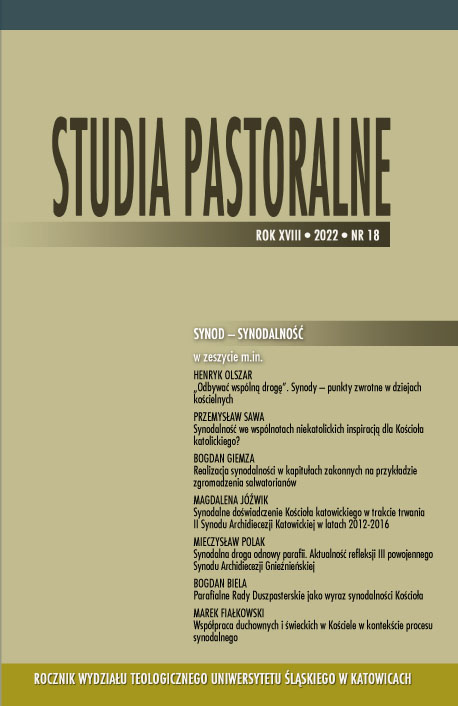Udział Michała Klepacza w pracach Konferencji Episkopatu Polski i jej komisji specjalistycznych (1947-1967)
Contribution of Michał Klepacz in the projects of the Polish Conference of Bishops and its special committees (1947-1967)
Author(s): Michał BiałkowskiSubject(s): Christian Theology and Religion, Theology and Religion
Published by: Księgarnia Świętego Jacka
Keywords: Michał Klepacz; Polish Episcopate; Polish Conference of Bishops; General Committee of the Polish Conference of Bishops; Committee on Matters of Theological Studies on Church Faculties and in Seminarie
Summary/Abstract: Bishop Michał Klepacz played a key role in the projects of the Polish Conference of Bishops after Second World War. Appointed as a bishop of Łódź diocese in 1946, he was called to be a member of the General Committee of the Polish Conference of Bishops. His duties were directly related to the work of the Committee responsible for talks between the representatives of the Polish Government (PRL) and the Polish Episcopate (1949-1967). He was also a member of various committees: the Theological Studies Committee overseeing Church Faculties and Seminaries (member in 1947-1951 and chairman in 1951-1953/1956), which was later changed to Academic and Seminary Committee (chairman in 1959-1967), School Committee (member in 1947-1953/1956), Press Committee (member in 1950-1953/1956), and Vatican Council Committee (member in 1959-1967). Bishop Klepacz played a major role in the last committee because he participated in all four sessions of the Second Vatican Council. The bishop of Łódź was also a key figure of the Polish Episcopate during the imprisonment and isolation of the Primate of Poland Cardinal Stefan Wyszyński (1953-1956). He was chosen to be the President of the Polish Conference of Bishops at the time of direct interference of the government (PRL) into the Church matters. During that time, he achieved the following: 1) drafted general direction and content of the pastoral teaching; 2) shaped difficult relationship with the government (PRL); 3) controlled and managed chapter vicars with the authority of bishops in the Western and Northern Territory; 4) supervised the activities of the religious societies. Difficult decisions undertaken by the President of the Polish Conference of Bishops at the time of complicated socio-political context call for new biographical studiem encompassing the governance of bishop Michał Klepacz in its entirety.
Journal: Studia Pastoralne
- Issue Year: 2022
- Issue No: 18
- Page Range: 160-206
- Page Count: 47
- Language: Polish
- Content File-PDF

